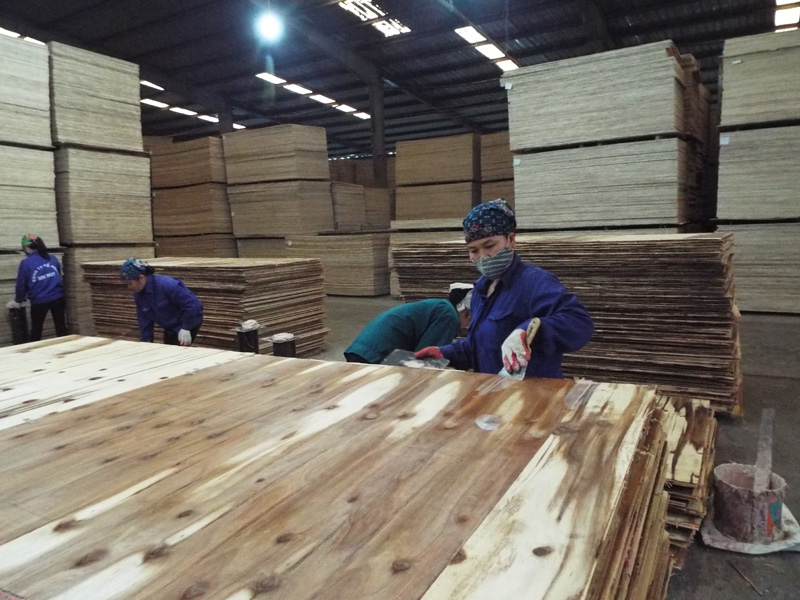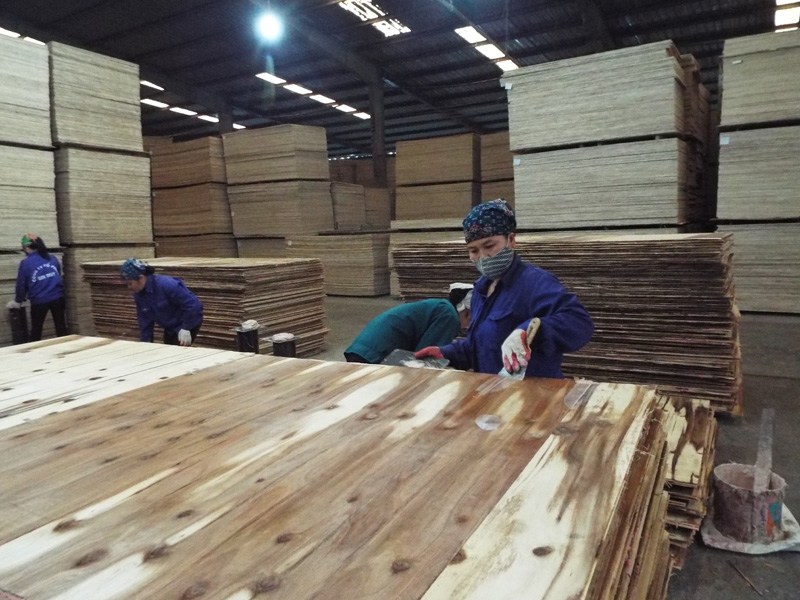
(HBO)- Son Thuy joint Stock Company is one of not many effective enterprises producing and trading wood products in the province, creating a stable and sustainable development.

In 2018, Son Thuy joint Stock Company paid 20
billion VND to the State budget, creating jobs for 200 employees with an
average income of 5.5 - 7 million VDNa person every month.
Mr. Nguyen Xuan Thuy, the director of Son
Thuy joint Stock Company said that in 2006, the company built a wood and forest
product processing factory in Denh hamlet, Dan Hoa commune, Ky Son district.
The company has been investing tens of billions VND into machines and equipment
to expand the factories. All production processes are strictly controlled
towards the goal of producing the best quality products, building a reputation
and brand name in the market.
The company always takes care of building and
improving the working environment, ensuring the regimes for employees such as
paying insurance, health insurance. The company regularly organizes holidays,
takes care of the employees’ material and spiritual life to create a motivating
and joyful atmosphere, striving to complete the production and business
targets. From 2006 - 2014, the company succeeded in producing pressed wood,
outdoor tables and chairs, which were mainly exported to European countries.
In 2014, the company continued to invest in
producing film plywood and sawn timber, which were mainly exported to other
countries to be used as wood pressed ceilings and concrete base for the
construction of high-rise buildings. The company always accomplishes the annual
production and business targets, maintaining a stable and sustainable growth.
Currently, the company has had 2 wood - manufacturing factories. In 2018, the
company’s revenue is 450 billion VND, maintaining a stable job for 200
employees with an average income of 5.5 - 7 million VND / person / month. In
the last 2 years, the company paid an average of 20 billion VND a year to the
State budget, accounting for about one-third of the State budget of Ky Son
district. It is the leading enterprise to remit the State budget in the area.
In the near fuure, the company is considering to expand another wood producing
factory in Mong Hoa commune, Ky Son district.
Up to now, the company's area of
afforestation is about 5,000 hectares in Luong Son, Ky Son, Yen Thuy and Lac
Thuy districts.
According to data from the Hoa Binh Provincial Party Committee, the industrial production index for the first six months of 2025 is estimated to have increased by 20% compared to the same period last year. This marks the highest year-on-year growth rate for this period since 2020.
In the first six months of 2025, Hoa Binh province’s export turnover was estimated at 1.145 billion USD, marking an 18.11% increase compared to the same period in 2024. Import turnover was estimated at $ 804 million, a 17.15% increase, which helped the province maintain a positive trade balance.
The lives of the ethnic minority farmers in Tan Lac district have gradually improved thanks to the new directions in agricultural production. This is a testament to the collective strength fostered through the professional associations and groups implemented by various levels of the district’s Farmers’ Union.
With the motto the "product quality comes first,” after nearly one year of establishment and operation, Muong village’s Clean Food Agricultural and Commercial Cooperative, located in Cau Hamlet, Hung Son Commune (Kim Boi district), has launched reputable, high-quality agricultural products to the market that are well-received by consumers. The products such as Muong village’s pork sausage, salt-cured chicken, and salt-cured pork hocks have gradually carved out a place in the market and they are on the path to obtaining the OCOP certification.
In the past, the phrase "bumper harvest, rock-bottom prices" was a familiar refrain for Vietnamese farmers engaged in fragmented, small-scale agriculture. But today, a new spirit is emerging across rural areas of Hoa Binh province - one of collaboration, organisation, and collective economic models that provide a stable foundation for production.
Maintaining growing area codes and packing facility codes in accordance with regulations is a mandatory requirement for agricultural products to be eligible for export. Recently, the Department of Agriculture and Environment of Hoa Binh province has intensified technical supervision of designated farming areas and packing facilities to safeguard the "green passport" that enables its products to access international markets.



